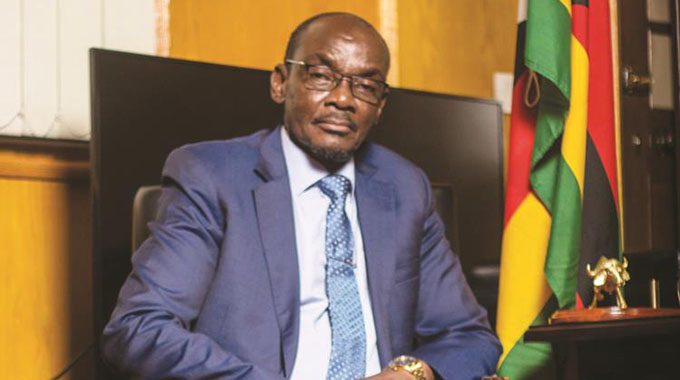Mass testing efforts satisfy Covid-19 national taskforce

- Zimbabwe Response to the Coronavirus (COVID-19) Outbreak
The Chairman of the Ad-Hoc Inter-Ministerial Taskforce on Covid-19, Honourable Vice President K.C.D. Mohadi presented the weekly report on the national preparedness and response to the Covid-19 Outbreak, which was adopted by Cabinet.
Cabinet noted with satisfaction the progress in mass testing evidenced by the increase in the number of Covid-19 tests to 13 329 as at 4 May 2020, up from the 6 395 tests reported on 27 April, 2020.
The country has to date registered 34 Covid-19 confirmed cases, inclusive of five (5) recoveries and four (4) deaths. Furthermore, the country’s capacity to test is being enhanced by the participation of private laboratories such as PSMI, LANCET and the PATHOLOGY LABS from Baines Inter-Care, among others.
Notable progress in the fight against Covid-19 has been registered in the area of research and development as follows:
(a) The establishment of a local consortium of researchers drawn from IamBYO-Fighting Covid-19 initiative, the National University of Science and Technology (NUST) and the University of Zimbabwe (UZ).
The Consortium is working with Tackling Infectious Diseases for the Benefit of Africa (TIBA) in spearheading research sinto Covid-19. TIBA is an Africa-led research programme that explores and draws lessons from the ways different African health systems tackle infectious diseases in Zimbabwe.
The study will be funded by the British Government through the National Institute of Health Research.
(b) Management of the Covid-19 country-specific research efforts will be done under the Government of Zimbabwe and Innovation Framework. Promising research outputs will progress to the Innovation Hub for refinement, prototyping and legal protection before ultimately moving to the industrial park for commercialisation.
Based on the fight against Covid-19, the research programme will be undertaken within the following pillars of focus as follows:
Scientific Understanding of Corona Viruses and Covid-19;
Biopharmaceutical Engineering;
Clinical Understanding of the Corona Viruses and Covid-19 and
Biomedical Engineering and Formulation of National Health Strategy on Covid-19.
Our Universities are currently working on proposals to carry out research in the different areas highlighted.
Cabinet noted with concern the surging in prices of basic goods despite the recently agreed price moratorium by all the stakeholders.
Furthermore, the apparent increase in the smuggling of second-hand clothes into the country through border posts such as Mt Selinda and Sango poses unprecedented danger of contracting Covid-19 by those who wear them.
Government will henceforth upscale the enforcement of the law banning the importation of second hand clothes.
In light of the foregoing, Cabinet agreed as follows:
(a) that private players in the Health Sector be enlisted to upscale the testing of employers and employees as they resume operations under Level 2 lockdown;
(b) that in order to ensure availability of staff at all health institutions, Government suspends the Collective Bargaining Agreement on flexi-hours for the health sector given that the State, in the Stimulus Package, offered to waive taxation for all health workers for the next six months;
(c) that a Covid-19 Command Centre headed by the Civil Protection Unit be established at the Ministry of Health and Child Care Headquarters to direct and coordinate all operations therefrom.
The Command Centre will be a hands-on facility that will report real-time to the Chairman of the Task Force on the day to day state of affairs of the COVID-19 response;
(d) that the services of the Zimbabwe Defence Forces (ZDF) in the logistics of the Covid-19 response be enlisted;
(e) that TIBA Zimbabwe conducts research into the strengthening of the COVID-19 response in Zimbabwe; and
(f) that the law banning the importation and sale of second-hand clothes be strictly enforced.
- Guidelines to operationalise the policy on mandatory testing for Covid-19 before reopening of businesses
- SI99 of 2020 requires companies in the commercial and industrial sectors which are opening for the first time during the period of lockdown to have all their employees tested for the Covid-19 virus using the Rapid Results test. This is a condition precedent.
- It has since transpired that companies are experiencing difficulties in accessing the Rapid Results test kits for testing their employees. In order to facilitate companies in the commercial and industrial sectors opening in terms of the relaxation pronounced under SI99 of 2020, Government has decided that, pending companies acquiring the required test kits to test their employees, companies will be permitted to open subject to the following conditions being met in relation to their employees:
(a) Temperature tests upon entering work premises;
(b) Hand sanitisers upon entry to sanitise their hands;
(c) Each employee to wear a face mask in appropriate form;
(d) Employees to practice social distancing in the work place;
- In the event that an employee has a temperature which is above that which the Ministry of Health and Child Care considers requires further testing, then such employee shall not be admitted to the work place, but shall immediately be referred to a facility of the Ministry of Health and Child Care to enable a Rapid Result test, to be administered on such employee.
- In the event that the employee tests positive for the Rapid Results test, then the employee shall be referred to a place of quarantine in accordance with the procedures prescribed by the Ministry of Health and Child Care.
- For the avoidance of doubt, companies shall remain under an obligation to subject all their employees to the rapid results tests as soon as reasonably possible during the period of the declaration of the Covid-19 as a formidable epidemic disease by the Minister of Health and Child Care.
- Principles to Establish the
Public Service Academy
Cabinet considered and approved the Principles to Establish the Public Service Academy after presentation by the Minister of Public Service, Labour and Social Welfare. The Public Service Academy will modernise staff development programmes through service training.
The objective is to ramp up the effectiveness, efficiencies, representation and ethical conduct by the entire Public Service. The Academy will also undertake consultancies and research for the development of patriotic citizen-centric, and innovative public servants capable of attaining national policies and programmes like Vision 2030.
4.Principles to Amend the State Universities Acts
Following presentation by the Minister of Higher and Tertiary Education, Innovation, Science and Technology Development, Cabinet approved the Principles to amend the thirteen State University Acts. The amendments are mainly meant to:
(i) align the University Acts to the Constitution. These relate mainly with respect to compliance with the principles of good governance, gender and regional balance; and
(ii) to entrench the culture of innovation and industrialisation for the production of goods and services.
- Update on the 5th 100-Day Cycle Cabinet received and noted progress reports in the implementation of the 5th 100-Day Cycle Priority Projects which Ministers presented. Cabinet noted that the Covid-19 lockdown had hampered implementation of some of the projects.
1) Primary and Secondary Education
The Minister informed Cabinet as follows:
that 3 060 ICT gadgets comprising of ipads, laptops, projectors and accessories had been distributed to 60 primary schools in Lupane district;
that upgrading and registering of satellite schools in Midlands, Matabeleland South, Mashonaland West Provinces was at 76.6 percent complete;
that maintenance of teaching and learning infrastructure in the Midlands Province stood at 97.5 percent complete. Cabinet noted that 2 x 3 ECD classroom blocks and 1 x 2 classroom block had been constructed at Gresham and Mutshingwe Primary Schools, Zvishavane respectively. Furthermore, the athletics track at Mosi-oa-tunya High School was constructed and completed, while Rwidzi High School infrastructure had been completed;
that a Solar Power System had been installed at Majiji High School in Bubi District;
that fitting of a water harvesting system at Komba Primary School, Lupane District stood at 90 percent complete; and
that works on the boarding facilities at Chapoto Secondary School, Mashonaland Central and at Regina Mundi Primary School, Matabeleland North stood at 60 percent complete.
2) Public Service, Labour and Social Welfare
The Minister informed Cabinet as follows:
that sign language training for 100 Social Welfare Officers stood at 50 percent complete;
that training of 300 sub-national staff on Basic Education Assistance Module (BEAM) procedures and policies was at 36 percent complete, with 109 officers having been trained;
that a total of 86 137.47 metric tonnes of grain was distributed and that 1 184 032 households have benefited from January to date; and
that 26 340 urban beneficiaries had benefited from the cash for cereal Programme. The database for all urban centres were compiled and payments are still in progress.
3) Local Government and Public Works
Progress was registered as follows:
construction of Block B under the ZRP Tomlinson Flats Project is 98 percent complete, with plumbing and electrical works almost complete;
upgrading of the Mabhula Sewer Treatment Plant from 3 to 6 mega litres per day is 80 percent complete;
procurement of the necessary materials under the Magamba Extension Water Reticulation Project is at 75 percent completion, while excavation of the 5-km trenches is 96 percent complete;
construction of 10 housing units under the Tsholotsho Disaster Recovery Project is 60 percent complete, while all the necessary construction materials for outstanding works have been procured; and that
construction of a 1×2 classroom block at Chigonda Primary School proceeded according to schedule, and is 100 percent complete.
4) Justice, Legal and Parliamentary Affairs
Progress to date includes the following:
The decentralisation of Legal Aid Directorate to Chiredzi, Beitbridge and Chivhu has commenced in earnest;
Under the Food Production Enhancement Project, achievements include the planting of the following: 422 hectares of maize, 80 hectares of cow peas, and 18.3 hectares of sugar beans, which are currently being harvested; four hectares of horticultural crops under drip irrigation; and seven hectares under overhead irrigation. With regard to the drip irrigation programme at Mutimurefu Prison, 2,45 hectares of the targeted 6 hectares have been effectively utilised.
Tiling of the Chinhoyi Magistrates Court is 75 percent complete, while preparatory works for the installation of roof coverings of the Mt Darwin Magistrates Court are 85 percent complete with paving works scheduled to start soon.
- Ranking of Zimbabwe’s National Budget Process According to the Open Budget Survey of 2019
Following a presentation by the Minister of Finance and Economic Development on the Open Budget Survey of 2019, which covers 117 countries globally, Cabinet noted with satisfaction that Zimbabwe has moved up in the global and regional rankings to 3 in Africa and 52 in the world.
The survey measures the quality of the National Budgetary process, the role of Treasury, Parliament and Auditor-General. Zimbabwe has made significant improvements in these areas, and recorded a surplus in the budget for 2019.











Comments